„Climate changes us” is the main theme of this year's Przemiany Festival, during which we will analyse different strategies for getting out of the climate crisis. Don't worry, our intention isn't to scare you with an on-coming catastrophe. On the contrary – we will focus on the most effective methods of avoiding it.
The inaugural lecture of the XI Przemiany Festival will be delivered by Professor Naomi Oreskes, an American science historian from Harvard's University, who focuses on research regarding climate denialism and the trust in science. Lately, Oreskes' work became an inspiration for Joanna Rajkowska's exhibition Rhizopolis at Zachęta gallery, and last year – The Penumbral Age exhibition at the Museum of Modern Art in Warsaw.
Doctor Valérie Masson-Delmotte is a French climate scientist from the Intergovernmental Panel on Climate Change (IPCC). She will talk about the latest IPCC findings on climate warming and its consequences, and present possible solutions for the crisis. Guillaume Pitron is a French journalist and author of documentaries. His lecture will cover rare raw materials in both environmental and geopolitical contexts.
Climate protests around the world are dominated by negative slogans. Protesters usually communicate which phenomena and which groups of interest should be fought in order to overcome the climate crisis. They demand moving away from fossil fuels, and putting a stop to destruction of the environment. They focus of humans and other animals suffering in the places which are most threatened by climate change. Most protest signs either point fingers and express objections, or call for some remedial measures. But which measures?
Dialogue based meetings between Przemiany audience and experts – meaning “after hours” talks in a casual, friendly atmosphere. We will create a safe space where you can discuss and exchange ideas comfortably, without the typical distance between lecturers and listeners.
Przemiany exhibition connects science, engineering, art, and design. Next to informative and educative exhibits, you will find also those that are meant to impact you emotionally, or are more closely related to your everyday experiences. At the exhibition, it will be possible to personally meet the creators of some exhibits.
For the Przemiany cinema programme, we always choose documentaries that are directly connected to the subjects explored at the festival. They are supplemental to the threads which sometimes don't make the time during lectures, debates, or meetings with experts.
Virtual Reality (VR) experiences – designed by an increasingly wider circle of visual artists, as well as it is used often for educational purposes – year after year, they show what a wide range of possibilities this new area of art and science can bring. A virtual immersion in new, alien worlds, and exploration of their complexities – it's hard to compare this with anything but the way in which we experience the non-virtual world in our everyday lives, using our senses.
Industry-level CO2 emissions have a negative impact on the climate. The scientific consensus on this have been achieved decades ago. One of the most important actions that need to be taken, in order to solve the climate crisis, is leaving fossil fuels behind, and creating systems of energy that reduce emissions to as low as possible. However, the scientific consensus didn't create a political one. The transition period has been a time of anxiety, uncertainty, and doubt.
Are energy transition and other global operations, which aim to solve the climate crisis, also a cause for cultural transformations? Who are the climate deniers, who would do anything to slow down the fight against global warming? We will be asking questions like these during the festival.
Festival Themes
- trust in science, and in sources of knowledge on climate change
- carbon footprint
- energy transition
- electro-mobility and changes in transportation
- climate justice
- geo-engineering
- rare Earth elements (both in the context of renewable energy sources, and digital technologies)
- climate protests and intergenerational dialogue
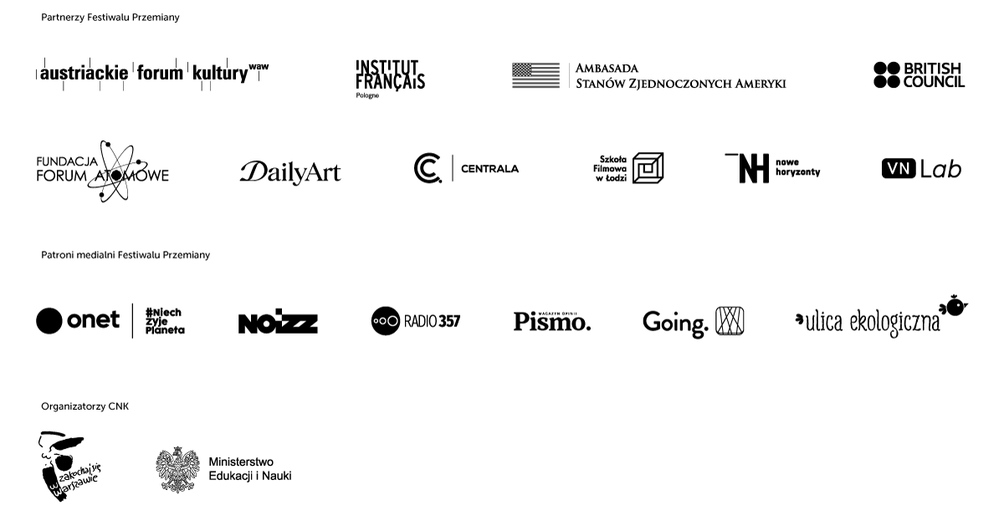
Program Festiwalu
XI FESTIWAL PRZEMIANY | KLIMAT NAS ZMIENIA
8-10.10.2021
8 października (piątek)
Nauka między alarmistami i negacjonistami
godz. 18.00–19.30 sala audytoryjna, poziom 0, wydarzenie streamowane
Wykład otwarcia
Ekspertka: prof. Naomi Oreskes (historyczka nauki, Uniwersytet Harvarda)
godz. 20.00 poziom 1
Otwarcie PRZESTRZENI EKSPOZYCYJNEJ (wystawy, galeria DailyArt, sala VR-owa, kawiarnia)
godz. 21.30–23.00 poziom 1
DJ set Virtual Geishy
9 października (sobota)
Niepokoje czasu transformacji
godz. 10.00–14.00 poziom 0, wydarzenie streamowane
Jak mógłby wyglądać pozytywny protest? (warsztaty z mini wykładami ekspertów i ekspertek),
Eksperci/facylitatorzy:
Adam Błażowski (Inżynier, publicysta, aktywista klimatyczny)
dr hab. Julia Fiedorczuk (pisarka i wykładowczyni, Uniwersytet Warszawski)
dr Tomasz Markiewka (filozof i wykładowca, Uniwersytet Mikołaja Kopernika w Toruniu)
Marcin Popkiewicz (analityk, dziennikarz, portal “Nauka o klimacie”)
Monika Sadkowska (ekspertka w dziedzinie sprawiedliwej transformacji w Fundacji WWF)
godz. 14.30–15.30 kawiarnia, poziom 1
Galeria zmian: cywilizacja i natura
Eksperci:
Zuzanna Stańska (DailyArt)
Krzysztof Kornas (kurator Festiwalu Przemiany)
Prowadząca: Zuzanna Kowalczyk (dziennikarka, magazyn Pismo)
godz. 16.00–17.30 sala audytoryjna, poziom 0, wydarzenie streamowane
Transformacja I: energia i kultura (panel)
Eksperci:
Maria Andrzejewska (dyrektor generalna, Centrum UNEP/GRID-Warszawa)
dr hab. Aleksandra Wagner, prof. UJ (socjolożka, Uniwersytet Jagielloński)
Wojciech Kukuła (prawnik, Fundacja ClientEarth Prawnicy dla Ziemi)
prof. dr hab. Szymon Malinowski (fizyk atmosfery, Uniwersytet Warszawski)
Jakub Wiech (prawnik, dziennikarz, portal “Energetyka24”)
Prowadzący:
Dariusz Aksamit (fizyk medyczny, Politechnika Warszawska)
godz. 18.00–20.00 sala audytoryjna, poziom 0, wydarzenie streamowane
PODWÓJNY WYKŁAD
godz. 18.00
Ekspertka: dr Valérie Masson-Delmotte (klimatolożka, Międzyrządowy Zespół ds. Zmian Klimatu)
godz. 19.00
Ekspert: Guillaume Pitron (dziennikarz, dokumentalista)
godz. 20.30–22.00 poziom 1
After Hours – eksperci po godzinach
godz. 22.00–23.30 poziom 1
DJ set Flauty
10 października (niedziela)
Międzypokoleniowa przyszłość
godz. 14.00–15.30 sala audytoryjna, poziom 0, wydarzenie streamowane
Transformacja II: ekonomia i wartości (panel)
Eksperci:
Katarzyna Szwarc (pełnomocniczka Ministra Finansów ds. Strategii Rozwoju Rynku Kapitałowego)
dr Magdalena Budziszewska (psycholożka, Uniwersytet Warszawski)
Michał Syska (prawnik, dyrektor OMS im. Ferdynanda Lassalle’a.)
Prowadzący:
Zbigniew Bohdanowicz (Instytut Interaktywnych Technologii w Ośrodku Przetwarzania Informacji – Państwowym Instytucie Badawczym)
godz. 16.00–17.00 kawiarnia, poziom 1
Technologiczna zuchwałość człowieka (panel)
Eksperci:
dr hab. Paweł Frelik, prof. UW (profesor, Uniwersytet Warszawski)
Marcin Popkiewicz (analityk, dziennikarz, portal Nauka o klimacie)
Maciej Jagaciak (Polskie Towarzystwo Studiów nad Przyszłością, Foresight Engineer w 4CF Strategic Foresight)
Prowadząca:
Aleksandra Budka (dziennikarka, Radio 357)
KINO PRZEMIAN:
8 października
godz. 20.30
KŁAMCY KLIMATYCZNI (The Campaing Against The Climate), reż. Mads Ellesøe, 2020, 53 min.
9 października
godz. 11.00
CIENKI LÓD. KULISY KLIMATOLOGII (THIN ICE The Inside Story of Climate Science), reż. Simon Lamb, David Sington, 2015, 60 min.
godz. 12.30
OBIETNICA PANDORY (Pandora’s Promise), reż. Robert Stone, 2013, 87 min.
godz. 14.30
JESTEM GRETA (I am Greta), reż. Nathan Grossman, 2020, 98 min.
godz. 16:30
OBIETNICA PANDORY (Pandora’s Promise), reż. Robert Stone, 2013, 87 min.
godz. 20.00
JESTEŚMY JAK BOGOWIE (We Are As Gods), reż. David Alvarado, Jason Sussberg, 2020, 94 min.
10 października
godz. 11.00
NADZIEJA UMIERA OSTATNIA, reż. Jonathan L. Ramsey, 2021, 120 min.
godz. 13.30
JESTEŚMY JAK BOGOWIE (We Are As Gods), reż. David Alvarado, Jason Sussberg; 2020, 94 min.
godz. 16.00
JESTEM GRETA (I am Greta), reż. Nathan Grossman, 2020, 98 min.
WYDARZENIA TOWARZYSZĄCE:
7 października (czwartek)
godz. 18.00–21.00 Austriackie Forum Kultury
Spotkanie ze zwycięzcami konkursu Przemian i AFK
Artyści:
Oliver Ressler, Gottfried Haider
Magdalena Mojsiejuk, Helena Maciukiewicz
Prowadzący: Stanisław Welbel (Austriackie Forum Kultury)
The inaugural lecture
In her scientific research, Professor Oreskes focuses on issues connected with protecting the environment or the global warming in the context of a confrontation between science, politics, society, economy, and the media. For the audience at Przemiany, she will take a closer look at the media-lobby manipulations around the climate and energy related topics. She will also make an introduction to the complicated process of getting from a scientific to a political consensus.
In Poland, only one book by Prof Oreskes was published – The Collapse of Western Civilization: A View from the Future. It looks at the present day, where we can still take action to protect ourselves from a climate catastrophe, from the perspective of the future. This new way of thinking about the here and now is a cold, or even “post mortem” analysis of our civilisation. Seen from the time when all the scientists' darkest prognoses have come to life, even though they knew (as they now know), what could happen. The book also echoes with an intergenerational context – a perspective on how to be a good ancestor who cares about the natural world.
Together with the lecturer, we wish to ponder the question of what and who is stopping us from taking the action that, according to science, we should be taking. What should we do, so that in the future Prof Oreskes' book stays a piece of literary fiction, which warned about the things that might happen, and doesn't become a chronicle of our way to oblivion.
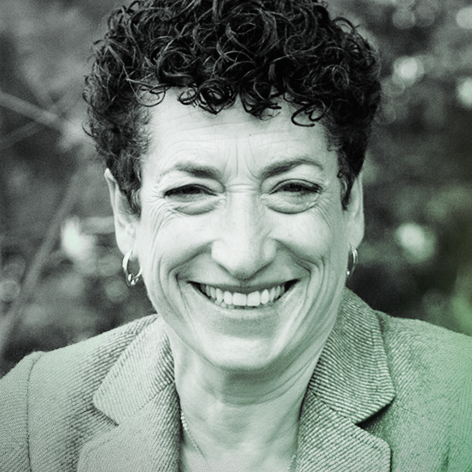 Naomi Oreskes is the Henry Charles Lea Professor of the History of Science and Affiliated Professor of Earth and Planetary Sciences at Harvard University. She is an internationally renowned earth scientist, historian, and author of both scholarly and popular books and articles on the history of earth and environmental science, including most recently, Why Trust Science? (2019) and Science on a Mission: How Military Funding Shaped What We Do and Don’t Know about the Ocean (2021). Her opinion pieces have been published in leading media outlets around the globe, including The New York Times, The Washington Post, The Times (London), and the Frankfurter Allgemeine. In 2015, she wrote the Introduction to the Melville House edition of the Papal Encyclical on Climate Change and Inequality, Laudato Si.
Naomi Oreskes is the Henry Charles Lea Professor of the History of Science and Affiliated Professor of Earth and Planetary Sciences at Harvard University. She is an internationally renowned earth scientist, historian, and author of both scholarly and popular books and articles on the history of earth and environmental science, including most recently, Why Trust Science? (2019) and Science on a Mission: How Military Funding Shaped What We Do and Don’t Know about the Ocean (2021). Her opinion pieces have been published in leading media outlets around the globe, including The New York Times, The Washington Post, The Times (London), and the Frankfurter Allgemeine. In 2015, she wrote the Introduction to the Melville House edition of the Papal Encyclical on Climate Change and Inequality, Laudato Si.
Professor Oreskes is a leading voice on the reality on anthropogenic climate change and the history of efforts to undermine climate action. Her 2004 essay “The Scientific Consensus on Climate Change” (Science 306: 1686) has been widely cited, including in the Royal Society’s publication, “A Guide to Facts and Fictions about Climate Change," and in the Academy-award winning film, An Inconvenient Truth. Her 2010 book with Erik M. Conway, Merchants of Doubt, has been translated into nine languages, sold over 100,000 copies, and made into a documentary film. She is an elected fellow of the Geological Society of America, the American Geophysical Union, the American Academy for the Advancement of Sciences, the American Academy of Arts and Sciences, and the American Philosophical Society. In 2018, she became a Guggenheim Fellow, and in 2019 was awarded the British Academy Medal for “her commitment to documenting the role of corporations in distorting scientific findings for political ends.” Her new book, with Erik Conway, The Big Myth: How American Business Taught Us to Loath Government and Love the Free Market, will be published by Bloomsbury Press in 2022.
Lectures
Lecture by Valérie Masson-Delmotte
Dr. Valérie Masson-Delmotte is a French climate scientist from the Intergovernmental Panel on Climate Change.
On the opening day of XI Przemiany Festival, exactly three years will pass from the publication of IPCC's Special Report on the global temperature rise of 1,5°C. Doctor Masson-Delmotte has played a vital role in the works on the report. Just like in the works on the first part of the 6th Assessment Report IPCC, published in August of this year, which was widely – although not widely enough – discussed in the media.
During the Festival, Doctor Masson-Delmotte will talk about the latest IPCC findings on the climate warming and its consequences. She will also present possible solutions to this crisis, which will be covered in the forthcoming parts of the 6th IPCC Report. Solutions – technological, political, social – which could realistically prevent the crisis, without increasing the world's inequalities in the aforementioned areas.
We will also get a glance at the behind-the-scenes of climate scientists cooperation, and the methods used to include their voices from around the world. We will learn about the role played in the climate research by scientists from the Global South, i.e. the part of the world which will be the first to experience potentially devastating consequences of the climate change.
Dr. Valérie Masson-Delmotte is a climate scientist and the Director of Research at the French Alternative Energies and Atomic Energy Commission, where she works at the Laboratory of Climate and Environmental Sciences (LSCE). She uses historical data to test models of climate changes. She is a co-creator of a few reports by the Intergovernmental Panel on Climate Change (IPCC).
Lecture by Guillaume’a Pitrona
Guillaume Pitron is a French journalist and author of documentaries. His lecture will cover rare raw materials in both environmental and geopolitical contexts, including their application in renewable energy sources. It occurs that e.g. solar panels or wind turbines are not as environmentally neutral, as one might think.
Guillaume Pitron's book The rare metals war: the hidden face of the energy and digital transition was translated into Polish and English. In France, the second book he wrote is coming out soon, this time focusing on the ecological footprint of digital technologies. Pitron had been gathering materials for this book for two years, on four continents. During the lecture, he will share with us the results of his work.
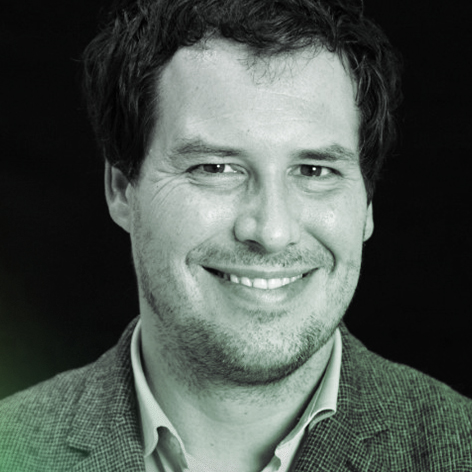 Guillaume Pitron
Guillaume Pitron
Guillaume Pitron is a French journalist (Le Monde Diplomatique, National Geographic, etc.) and documentary maker for France’s leading television channels. In 2018, he published his first book, "The Rare Metals War: The Dark Side Of the Energy Transition and Digitalization”, his second book „L'enfer numérique” just published in France.
From Chinese rare earth metals, oil extraction in Alaska, to Sudanese gum arabic and khat trading in Djibouti, he focuses his work on commodities and on the economic, political and environmental issues associated with their use.
This common thread is paired with geographic consistency: the African continent, particularly South Africa where Guillaume was a news correspondent in 2010.
To date, he has authored around 100 reports, investigations and documentaries across more than 40 countries and has been awarded 14 French and international journalism awards. These include the Izraelezewicz Prize for best investigative report of the year, awarded by the leading daily newspaper Le Monde, and the award for best economic book of the year 2018. He holds a post-graduate law degree from the Paris universities, and a Masters in international law from the University of Georgetown (Washington, D.C).
The lectures are carried out thanks to support from the French Institute.
Artist Talk
We wish to invite you to a meeting with Oliver Ressler (Austria), Gottfried Haider (Austria), Magdalena Mosiejuk (Poland), and Helena Maciukiewicz (Poland) – the artists awarded in the Open Call contest for artistic projects, organised by the Austrian Cultural Forum and Copernicus Science Centre.
In the Open Call, the jury has given separate awards to artists from Poland and from Austria. The first places were won by projects Reclaiming Abundance by Olivier Ressler, and #Gardenfit by Magdalena Mosiejuk. The second prizes went to Things of Internet by Helena Maciukiewicz, and Amazon Air by Gottfried Haider. The projects were awarded for dealing with strategies of overcoming the climate crisis, and with chances for lasting socio-cultural change.
A meeting at the residence of Austrian Cultural Forum, Próżna St., will be preceded by a presentation of the pieces within Przemiany Festival in Copernicus Science Centre. Artist Talk will be a chance to present the projects, to take a closer look at the artistic techniques of awarded artists, and to chat about the issues touched upon in the awarded projects. We want to talk about what is the role of art in causing long lasting change. Can art become an artistic bridge between science and engineering facts, and emotions – connect information with inspiration, and the environmental perspective with a social one.
Artists:
- Oliver Ressler, Gottfried Haider
- Magdalena Mojsiejuk, Helena Maciukiewicz
Host:
- Stanisław Welbel (AFK)
Doświadczenia VR-owe
Virtual Reality (VR) experiences – designed by an increasingly wider circle of visual artists, as well as it is used often for educational purposes – year after year, they show what a wide range of possibilities this new area of art and science can bring. A virtual immersion in new, alien worlds, and exploration of their complexities – it's hard to compare this with anything but the way in which we experience the non-virtual world in our everyday lives, using our senses.
Which is why this year, during Przemiany, we want to tap into this huge communicative medium, and present climate change related experiences to our Visitors. They will impacts your emotions, imagination, and senses. Who knows, maybe they will motivate you to pursue pro-climate activism.
What can you expect?
You will feel one with nature more intensely than usual – like with magnifying glass, you will take a look into the usually invisible and mysterious life of nature.
You will see our daily lives through the prism of carbon footprint, which is today being generated by the everyday lifestyle of each and every one of us.
You will be immersed in a world, where night is the only protection from the burning Sun.
Our VR review will allow you to look at climate change and the future of the Blue Planet, through the prism of poetic pictures, and bodily experiencing digitally generated plants, which vibrate under touch.
Curator of the VR Section at Przemiany Festival: Weronika Lewandowska
Meet Your Carbon Footprint – invisible greenhouse gasses
Every day, our carbon footprint influences the future of planet Earth. Often, we don't even realise which of our everyday activities affect the global warming. What can we do in order to limit the emissions of greenhouse gasses? Let's begin with small steps, at home, in shops, and on the street. Meet Your Carbon Footprint is a 360° video, created by the United Nations under the UN Environment Programme (UNEP). This experiment maps the emission of invisible greenhouse gasses in the human environment, and helps to identify the sources of carbon footprint, which, in turn, can become an aid in changing our everyday habits.
(ambisonic video 360°, language: English, 4:46)
United Nations Environment Programme
Tree VR – inside the body of a tree, or empathy for rainforests
Rainforests are the green lungs of Earth, and the oldest living ecosystems in the world, rich in diversified flora and fauna. The process of deforestation and wildfires are big dangers to these areas, which can have consequences for all of us. Awarded at many festivals, Tree VR takes us to a rainforest. We can become a part of it. Within the virtual reality, we transform into a huge, tropical, ceiba pentandra (kapok) tree. Our hands take the shape of branches – they grow and transform. From this perspective, we can observe the life of tropical flora and fauna. Tree VR allows us to understand, that nature needs our help, as it can be powerless in the face of some dangers that humans can escape from, and nature – can't.
(interactive VR, and a spatial installation designed by Magda Major from Paper Heroes, language: English, 8:00)
Directed by: Milica Zec, Winslow Porter
Executive producer: Devon Baur, New Reality Company
Nightsss VR – a poetic experience of digital nature
Spending time in nature has beneficial effects for our bodies and our minds. Listening closely to the sounds of nature lowers our levels of stress and pain. And what if we dive into the world of digitally generated plants? Can the world of digital nature help us to relax and regenerate? Within the poetic experience of Nightsss, we can renew our connection with nature. Organic movements of objects, a meeting with a dancing figure, and the changing environment – they transform us, too. We explore the virtual space of the night, just to end up facing the virtual Sun and soak up in its warmth. Poetry and sounds of nature take us on a journey within ourselves. Thanks to just a moment spent on a virtual meadow, we notice real change in our bodies and in how we breath.
The world premiere of Nightsss took place on Sundance Film Festival in 2021. It was awarded for the best spatial arrangement of interactive sound at Cinequest Film & VR Festival.
(interactive VR with a sensory-kinetic installation, designed by Magda Major from Paper Heroes studio, language: Polish, 7:00)
Directed by: Weronika Lewandowska, Sandra Frydrysiak
Executive producer: Laboratorium Narracji Wizualnych/ vnLab
Workshops
Climate protests around the world are dominated by negative slogans. Protesters usually communicate which phenomena and which groups of interest should be fought in order to overcome the climate crisis. They demand moving away from fossil fuels, and putting a stop to destruction of the environment. They focus of humans and other animals suffering in the places which are most threatened by climate change. Most protest signs either point fingers and express objections, or call for some remedial measures. But which measures?
Specific, positive demands appear on those protest signs rarely (if at all). We wish to change this. During the workshop, together with people of science and technic, lawyers, journalists, activists, and artists, we will come up with positive slogans, and create signs with content that aims to popularise the existing solutions to climate crisis.
The workshop will be preceded by short presentations conducted by experts, where they will touch on such topics as: energy transition, protection of the environment, climate justice, forms of activism and political actions, but also the metaphors and narratives that dominate the discussions around the climate crisis.
Experts / facilitators:
- Adam Błażowski
- Dr hab. Julia Fiedorczuk
- Dr Tomasz Markiewka
- Marcin Popkiewicz
- Monika Sadkowska
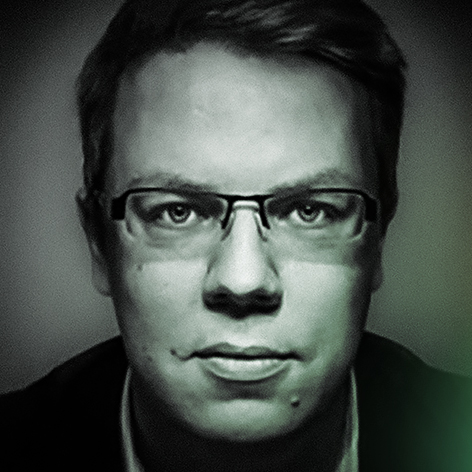 Adam Błażowski
Adam Błażowski
Engineer and publicist, climate activist, who has been professionally involved with the energy effectiveness and Smart City industry for 15 years. He worked with Climate Knowledge and Innovation Community, and European public-private partnership for climate innovations. He's one of the founders of the FOTA4Climate Foundation, acting for nature and for a well founded and open debate on the climate change challenges, based on the best scientific knowledge available.
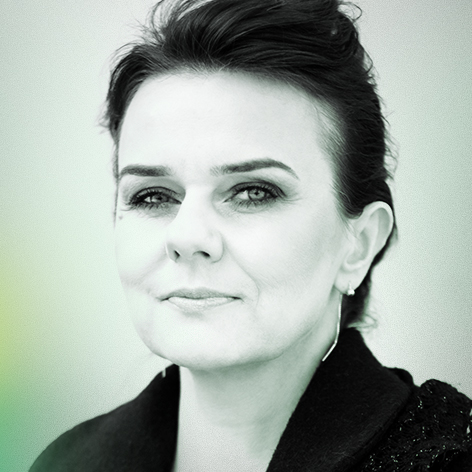 Dr Julia Fiedorczuk
Dr Julia Fiedorczuk
Writer, poet, translator, and lecturer at the English Studies Institute, University of Warsaw. As a propagator of eco-criticism, she puts the relationship between humans and non-human nature first, with an emphasis on the world-building power of literature in her work. Author of short story collections and novels. Nominated to the Nike literary prise for her book “Weighlessness”. For her last poetry book Psalms, she was nominated to the Wisława Szymborska Award in poetry. Julia Fiedorczuk texts and their translations have been published, among others, in “Literatura na świecie”, „Dwutygodnik”, „Tygodnik Powszechny”, „Pismo”, and „Znak” monthly. She is a felietonist for “Przekrój” and “Polityka”. Her work was translated into more than 20 languages.
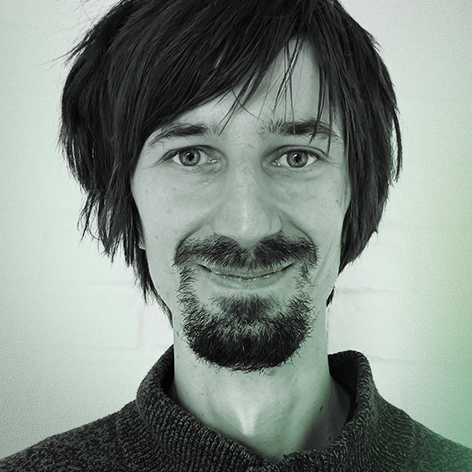 Dr Tomasz Markiewka
Dr Tomasz Markiewka
Philosopher and journalist. Lecturer at the Nicolaus Copernicus University in Toruń. Author of, among others, “To Change the World Again. How To Win the Fight for Climate” (2021) and Rage (2020). He works on critical analysis of various aspects of contemporary capitalism – from pop culture to climate crisis.
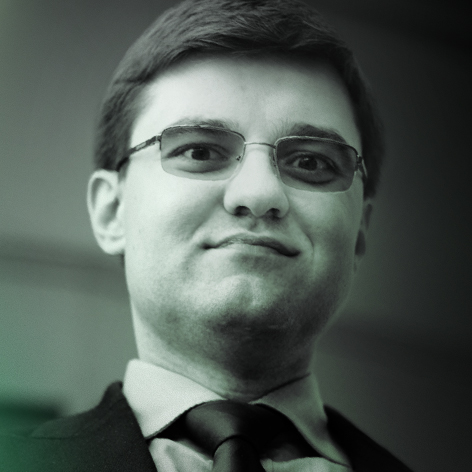 Marcin Popkiewicz
Marcin Popkiewicz
As a megatrend analyst, expert and journalist, he is focusing on the connections within the economy-energy-assets-environment areas. Author of such bestsellers as “The world at a crossroad”, “Energy revolution. What for?” and “Science on Climate”. Editor-in-chief of naukaoklimacie.pl and ziemianarozdrozu.pl. Laureate of “Journalists for Climate 2015” main prize, “Renewable Energy Promoter 2016”, and “Economicus 2016” for the best economy knowledge propagating book. Together with the “Science on Climate” editorial team, he is also a laureate of the “Science Communicator 2017” prize, awarded by the Ministry of Science and Higher Education and the Polish Press Agency. He's an expert for the National Centre for Research and Development in the field of energy transit technology.
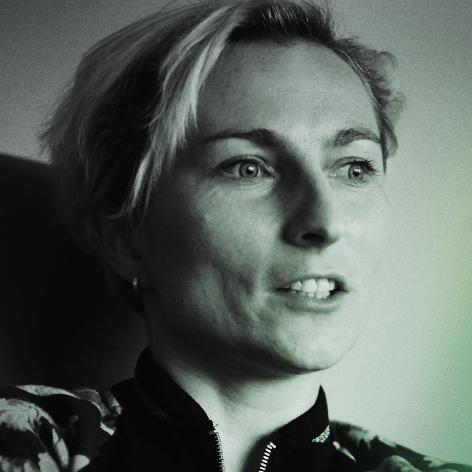 Monika Sadkowska
Monika Sadkowska
Cultural theorist, expert in the field of just transition in the WWF Foundation, within the Forum of Mayors on Just Transition, collaborator of ClientEarth Lawyers for Earth and The Foundation "Development YES – Open-Pit Mines NO". Co-creator of The Climate Camp and Climate Choir, producer at the Zbigniew Raszewski Theatre Institute and Museum of the History of Polish Jews POLIN. Formerly, an actor and a vocalist.
The exhibitions area
Przemiany exhibition connects science, engineering, art, and design. Next to informative and educative exhibits, you will find also those that are meant to impact you emotionally, or are more closely related to your everyday experiences. At the exhibition, it will be possible to personally meet the creators of some exhibits.
Open call artworks
This year, Copernicus Science Centre and the Austrian Cultural Forum have invited Polish and Austrian artists to take part in an open contest for an artistic project. The winning entries from Austria an Poland will be presented at the XI Przemiany Festival, and on 7 October, at Austrian Cultural Forum, a meeting will be held with the artists behind those pieces. All entries which met the criteria of our contest are presented on a separate subpage at Przemiany Festival.
In a debate, instead of assuming the crisis perspective, we want to focus on actual solutions. The time has come, within social debate, to analyse which solutions are the most realistic and the most desirable. And also – how to introduce them efficiently. On every scale: from little changes in our everyday lives, to urban and local community centered designs, and economic or political decisions on highest levels, regarding whole industries, especially in relation to the energy transition policies, and the need to shift away from fossil fuels as soon as possible.
The artists who answered our Open Call were offered two, very different approaches to the subject. Within the frames of one of the two perspectives, they were asked to create artworks which connect the topics of science and engineering with those of sociology and culture.
Protopia is a notion invented by Kevin Kelly, who suggested it would be a good way to avoid the imagination-restricting dichotomy between utopia and dystopia. The “pro–“ prefix relates to the process and the progress. It's a perspective of gradual improvement, small steps, actions with measurable results, tiny, positive changes, which accumulate over time. It would be best not to destroy the world at all, but in a protopian view, we should at least create more than we destroy, always try to come out ahead.
A new genre, growing in popularity in literature, art, fashion, and activism, which is one of the few positive, filled with hope, aspirational visions of the future, in the context of the relationship between civilisation and nature. Without utopian wishful thinking, just specific values, and empirically proven reasons for optimism. Solarpunk shows a world where we are much more aware of the environmental costs of the development of civilisation. In this approach, humanity doesn't rule over nature, but rather civilisation and nature have become a harmonious entirety, and are making each other stronger, together. Be fruitful, multiply, and befriend the earth, rather than subdue it.
In the Open Call, we were mostly curious to see projects exploring the frontiers between art, design, science, and engineering, within the frames of broadly understood current of art and science, or the new media art. So those that were implementing bio art, data art, speculative design, robotic art, or responsive environments. We were looking for projects that would fit into those objectives, that would carry ideas, and become pretexts for a deepened debate and workshopping during the XI Przemiany Festival.
We wanted to see entries that:
- question the feeling of powerlessness, dominating within the collective imagination regarding the struggle against climate crisis, which births dystopian narratives, full of catastrophical prognoses;
- add a humanistic and social context to the analytical and strategic optic of the climate crisis solutions;
- build an artistic bridge between scientific and engineering facts, and emotions – connected information with inspiration, an environmental perspective with the social one;
- refer to the co-dependency between efficiency, aesthetics, and the easiness of introducing new technologies (in the context of an aesthetic aspect of the energy transition);
- promote long-term thinking, and do the groundwork of positive thinking about the future;
- present solutions, which could be used against the climate crisis, as well as ideas related to those solutions, in easy to understand, digestible ways.
Tablets section
Good news is: there is a lot to learn about the climate change and solutions to the climate crisis. Bad news is: due to the aforementioned fact, we are unable to present everything we would have loved to share with you at Przemiany. Which is why we recommend other sources which will be helpful in contributing to your knowledge about the climate change, its consequences, and the most interesting examples of pro-climate actions.
On the tablets, available at the exhibitions area you will find:
- an experiment on how a heightened CO2 level in the air can influence human well-being (a CO2 sensor will be available at the exhibition);
- a teaser of the course towards solving the climate crisis;
- nuclear power related materials;
- geo-engineering projects;
- presentation of the so-called Dyson's Sphere, and the process of nuclear fusion;
- a report on the attitude towards climate change among Poles.
After Hours
Dialogue based meetings between Przemiany audience and experts – meaning “after hours” talks in a casual, friendly atmosphere. We will create a safe space where you can discuss and exchange ideas comfortably, without the typical distance between lecturers and listeners.
We will talk about:
- tools, such as the carbon footprint calculator or the blackout simulator;
- systems for optimisation of energy transition;
- satellite pictures, used to monitor climate change;
- citizen science in the context of ionising radiation measurements;
- climate justice when it comes to global inequalities – especially within the area of the Global South;
- high-speed rail which could partly replace the energy consuming air transport;
- turning waste into sources of energy;
- the most effective pro-climate organisations;
- the climate fiction trend in literature;
- the role of humanities in solving the climate crisis.
What's the connection between satellites and petroleum? And what can they tell us about natural gas as the so-called bridge fuel? Or about the distribution of solar farms?
Satellite pictures are useful not only for the scientists who conduct research on the causes and symptoms of climate change. They can also be useful in evaluating the climate catastrophe response strategies. Both from the scientific and the journalistic perspective.
Join me for a conversation around a few examples of using satellites in the context of climate that I have prepared.
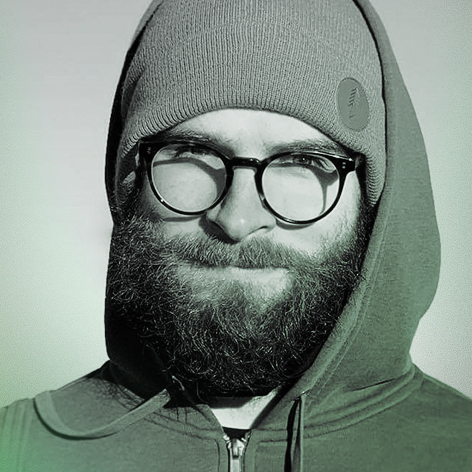 Aleksander Jasiak
Aleksander Jasiak
Geologist, informal educator, trade unionist. Lover of using satellite pictures in socially committed education. Co-creator of “Satellite pictures in school” online course. Within Copernicus Science Centre, he coordinates the Space Education Office ESERO-Poland. Works at Autonomous Educational Space.
Our activities generate carbon footprint – if we wish to reduce it, we should be wary of imprudent actions which don't really make a difference, or even make things worse! In order to act rationally, we need to start with finding the sources of our individual emissions, take a closer look at their importance, and consider possible substitutes. That is how we begin to tackle the most important issues!
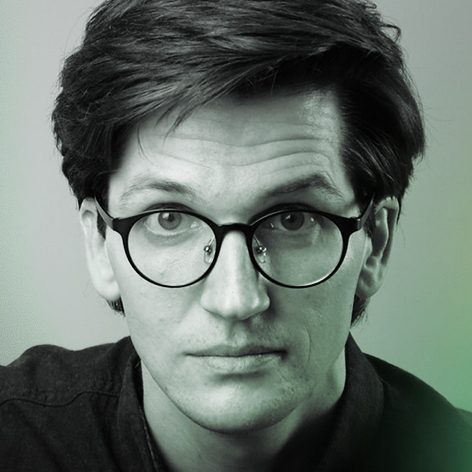 Dariusz Aksamit
Dariusz Aksamit
Scientist, science communicator, and NGO activist. A medical physicist at the Faculty of Physics, Warsaw University of Technology. Works on applications of ionising radiation in medicine, radiation and radon measuring, and radiological protection. Cooperates with, among others, the National Research Institute of Oncology and the Institute of Nuclear Chemistry and Technology. Former employee of the Central Laboratory for Radiological Protection. Takes action within NGOs: he's a co-founder and the first Chair of The Spokesmen of Science, co-founder and board member of Marsz dla Nauki Foundation. Recipient of “Science Communicator 2018” prize in the category of Animator, awarded by the Science in Poland website and the Ministry of Education and Science.
You are welcome to join our discussion on economic issues related to climate change. We will take a closer look at the energy sector, which – in the nearest future – needs to undergo a fundamental transformation, in order to reduce the emissions of greenhouse gasses, while, at the same time, reliably providing energy to developing economies. So, let's talk about the energy transition. What are its possible scenarios, what chances do they bring, and what are the dangers. Is there a realistic threat of a serious breakdown of energy systems, of a blackout? How should we change our ways of producing and using energy? We will also talk about the stances of economists who deal with climate change, and the values that guide them.
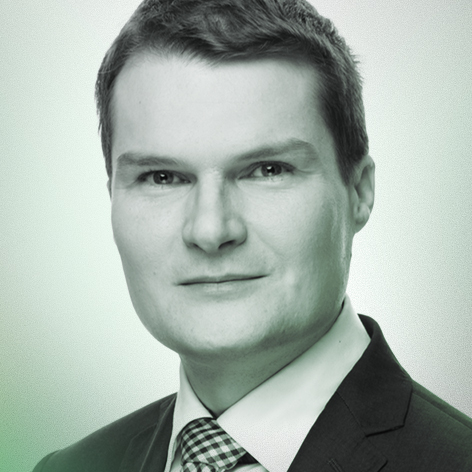 Zbigniew Bohdanowicz
Zbigniew Bohdanowicz
Economist and psychologist. Works at the Laboratory of Interactive Tecnologies, at the National Information Processing Institute – National Research Institute, where he conducts research on transformations of the energy sector within the European Union, new models of using electric
energy, energy awareness in societies, and attitudes towards new solutions. He works as a climate educator at the University of Warsaw. He's the co-author and one of science editors of an interdisciplinary handbook on climate change, “Climate ABC”. He's a PhD candidate at the Faculty of Economic Sciences, University of Warsaw; executed a research project on attitudes towards climate policies in Poland and Germany.
The fight against the results of climate change requires a huge amount of data regarding the quality of air, water and soil in many places on Earth. No scientist is capable of gathering all that data alone. Also, professional equipment would be required. Thankfully, we have independent inventors and open source technologies. Measuring devices and verifiable data sets could be used when making key decisions regarding the fight against climate crisis, or when educating the inhabitants of the researched regions.
At this stand, we will find examples of such devices, created by independent inventors – a Safecast geiger counter (https://safecast.org/) and a smog detector.
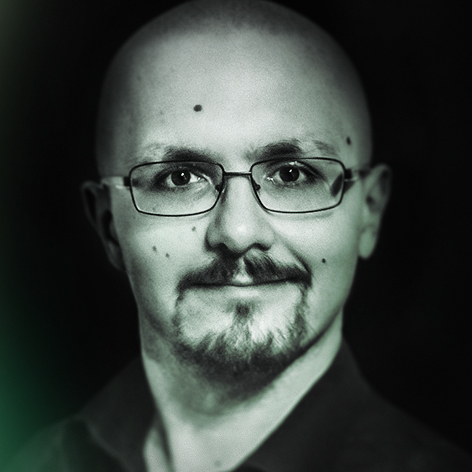 Paweł Ngei
Paweł Ngei
Programmer, hacker, activist, and educator. For the last decade, he has been dealing with citizen science and open source technologies. He began from working on independent brain-computer interfaces and sharing neurological data. Member of Global Innovation Gathering, a network of activists, inventors, and educators from the Global South. Cooperated with inventors and researchers from Europe, Middle East, both Americas, and Africa. Lately, he has gathered data for the Safecast project, which was created after the Fukushima catastrophe, in order to provide maps of ionising radiation all over the world. He is a solarpunk – he believes that by changing our culture, economy, and technology, we can survive the climate catastrophe.
We wish to talk about the ways in which the countries of the Global South are managing the effects of climate change. Even though it is a worldwide issue, most of the contamination and CO2 emissions come from the developed countries, but it is the Global South countries which are experiencing their results much more heavily. The climate change influences economy, nutrition and food safety, culture, and the customs of whole communities. Some regions are especially threatened by the increase of temperatures and pay a disproportionately bigger price for the global warming, and yet – at the international forum, the voices of the Global South don't really count.
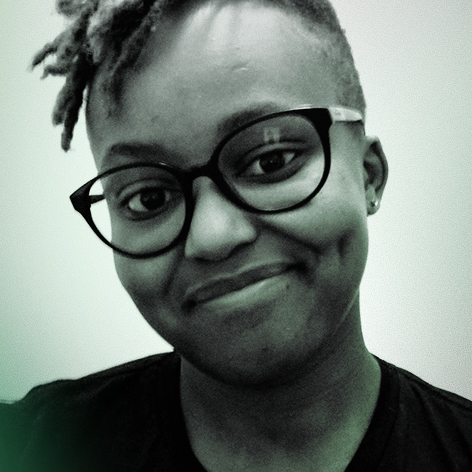 Star Ngei
Star Ngei
An international activist and educator in the field of open source technologies, privacy, and digital economy. Specialising in mesh networks and Distributed Ledger Technologies, and their influence on societies and economies. For 5 years, Ngei has taken part in Global Innovation Gathering, a network of activists, inventors, and educators from the Global South, working towards a responsible and balanced development of technology. She hosts workshops on technological solutions in the Global South countries, and their possible applications in Europe.
Modern philosophers deliberately abandon the utopian vision of clean, paradise-like, green planet, promoted by traditional ecological imaginations. They often reference the controversial figure of Cthulhu – the Great Old One, a tentacled, monstrous god, from the literary universe of H. P. Lovecraft. The sinister figure of Cthulhu is a source of inspiration e.g. for Donna Haraway, a biologist and philosopher, who sees him as a life-giving realisation of symbiotic interspecies connections. The dark character from the prose of Lovecraft is also an important reference point for thinkers who work in the field of speculative realism – Graham Harman (weird realism) and Timothy Morton (hyperobjects).
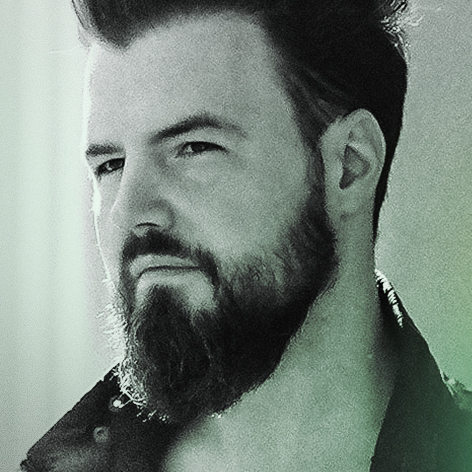 Dr. Andrzej Marzec
Dr. Andrzej Marzec
Philosopher, film critic, editor of “Czas Kultury” magazine, curator of a film course “Short circuits” in Pawilon, Poznań. His research is focused around speculative realism, object-oriented ontology, dark ecology, and contemporary alternative cinema. Author of “Hauntology – the philosophical theories and artistic practices of postmodernity” (2015) and “After Nature – philosophy and aesthetics of Anthropocene” (2021), which was nominated for the Identitas Award.
Effective Altruism Foundation
Which organisations work most effectively in the area of combating climate change and reducing its negative effects? What makes some of them more effective than others? How can we join their efforts? These, and other similar questions will be answered during this panel. We will pay special attention to the costs, the power of scientific proofs, and the possibility for further scaling of the solutions. We will also try to examine the frequently overlooked aspects of charitable activism in the areas where change is as urgent, as it is measurable.
During After Hours, the Polish team of the international Effective Altruism movement will be represented by the new presidents of the Effective Altruism Foundation – Maja Laura Jaryczewska i Jakub Królak. The movement is shaped by people whose wish is to do as much good as possible. In Poland, Effective Altruism Foundation works to popularise scientific knowledge and philosophical reflections regarding charity (see Derek Parfit, Peter Singer). They raise money for the most effective charity organisations, recommended by the GiveWell evaluators. In 2021, the Foundation joined a programme organised by Charity Entrepreneurship, which aims to build research competences in the area of charitable activity.
 Maja Laura Jaryczewska
Maja Laura Jaryczewska
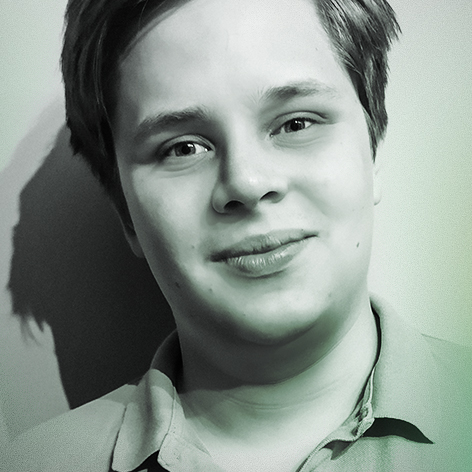 Jakub Królak
Jakub Królak
Around 2 billion cups of coffee are drunk every day, which generates huge amounts of waste. In Poland, the amount of produced coffee grounds is estimated to be around 120 000 tons per year. Landfills are getting bigger and bigger, just like the emissions of greenhouse gasses. During After Hours, we will have a conversation about technologies which allow to conduct a closed loop economy. EcoBean technology allows us to transform coffee grounds into bioproducts.
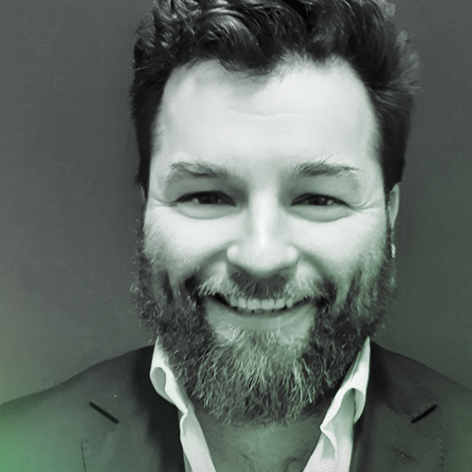 Marcin Koziorowski
Marcin Koziorowski
The CEO of EcoBean, a startup created to build a closed loop economy, and to implement new business models on the HORECA market, based on collecting and transforming coffee grounds from cafes, hotels, petrol stations, and offices. The main goal which Marcin Koziorowski has set for his team is to significantly reduce the carbon footprint of places which serve coffee. For 10 years, he has been effectively connecting the world of science with the world of business. He manages, mentors, and supports a few startups from the field of material, chemical, and pro-ecological technologies. Koziorowski also trains and lectures in the field of project management, technology commercialisation, new product development.
Solarpunk is a new genre, growing in popularity in literature, art, fashion, and activism, which is one of the few positive, filled with hope, aspirational visions of the future, in the context of the relationship between civilisation and nature. Without utopian wishful thinking, just specific values, and empirically proven reasons for optimism. Solarpunk shows a world where we are much more aware of the environmental costs of the development of civilisation. In this approach, humanity doesn't rule over nature, but rather civilisation and nature have become a harmonious entirety, and are making each other stronger, together. Be fruitful, multiply, and befriend the earth, rather than subdue it. Kim Stanley Robinson, laureate of Hugo and Nebula prizes, writes his novels in the spirit of Solarpunk, but – as he says himself – he is not tied with the movement, and his work is more of a continuation of the utopian tradition in its critical form, tailored for the realities we are actually facing.
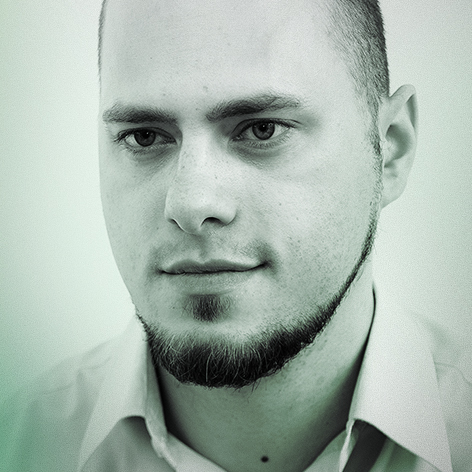 Michał Klata
Michał Klata
Graduate of Sociology and English Studies. He will present solutions to the climate crisis that have been proposed by Kim Stanley Robinson and the Solarpunk movement. Attendees of the meeting will have a chance to talk to the researcher, and find out what cognitive alienation is about, and how, according to Robinson, a city of the future could look like. It will also be a great networking opportunity!
At the Nevomo stand, we will talk about the possibilities of using hyperloop inspired transport technology. With the already existing railway infrastructure, the Nevomo technology will immediately allow us to transport people and goods with an average speed twice as high as in conventional rail. Eventually, the trains will be able to reach a target speed of 550 km/h.
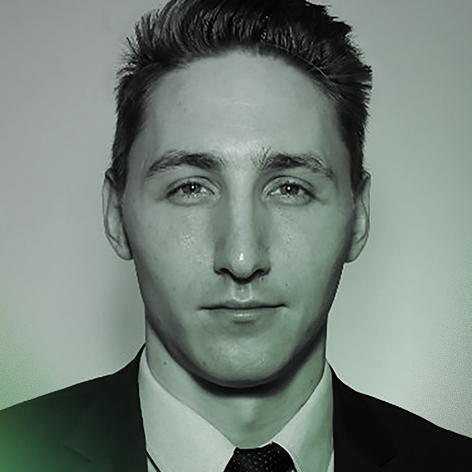 Maciej Lenartowicz
Maciej Lenartowicz
Engineer and constructor. Co-Founder & Head of Infrastructure in Nevomo, where he is responsible for infrastructural projects. A specialist in designing and building bridges, tunnels and viaducts on roads. For 12 years now, he has been involved with Mosty Łódź Spółka Akcyjna, where he assists in technological projects and constructions, e.g. in Scandinavia. On top of that, he gives popular science lectures and teaches workshops, e.g. on hyperloop technologies, among others – at Children's University. Together with the Nevomo project team, he has received the Innovation Award in the Build Earth Live contest in the United Arab Emirates.
The struggle against climate crisis is a truly complex undertaking, logistically. Highly advanced technology can give us the necessary tools. At this stand, we will take a closer look at the Zefir system – an IT toolkit for local government bodies. We will talk about the possibilities of using this system to handle the coming energy transition, by identifying regional problems, searching for the best solutions, while considering both the economy and ecology in order to plan the most effective actions.
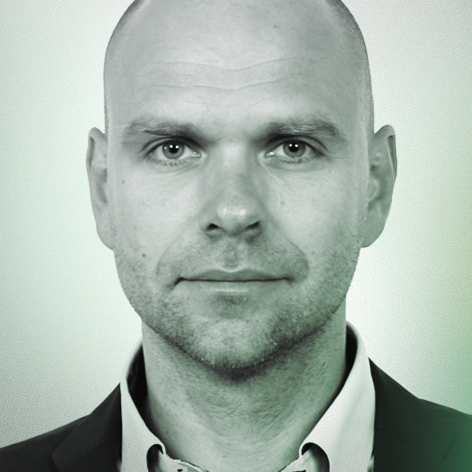 Dr.-Ing. Karol Wawrzyniak
Dr.-Ing. Karol Wawrzyniak
Graduate of computer engineering at Faculty of Electronics and Information Technology, Warsaw University of Technology, and Finance and Accounting at Faculty of Economic Sciences, University of Warsaw. He has defended a thesis with distinction, which had been prepared as part of a Polish-German study ICM UW/IWR Heidelberg the Interdisciplinary Centre for Mathematical and Computational Modelling of UW and Interdisciplinary Center for Scientific Computing Heidelberg University). Graduate of the TOP500 programme in the category of creating innovation, implementing innovation, and commercialisation of innovatiove solutions in Stanford University
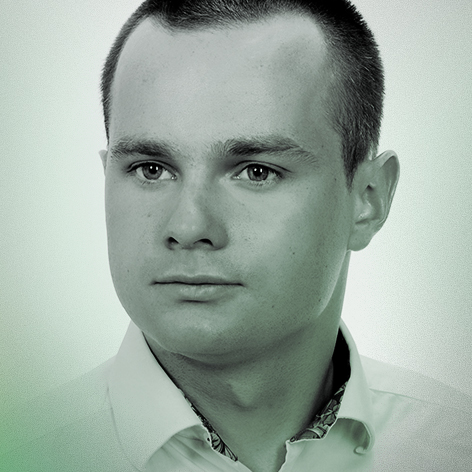 Tomasz Chmiel
Tomasz Chmiel
Graduate of Internal Security post-graduate programme at the University of Warsaw, specialising in energy security. Between 2018-2021, he worked for public administration offices, in departments responsible for energy policies, e.g. Ministry of Energy, Ministry of Development, or Ministry of State Assets. His responsibilities included execution and promotion of operations in the field of local, distributed and prosumer oriented energy. Within IDEA/NCBJ, he is responsible for preparing dedicated analyses of the energy market domain, and for ongoing monitoring of legal provisions and legislative initiatives, regarding the energy sector.








